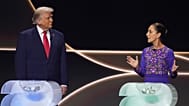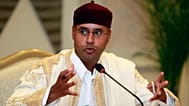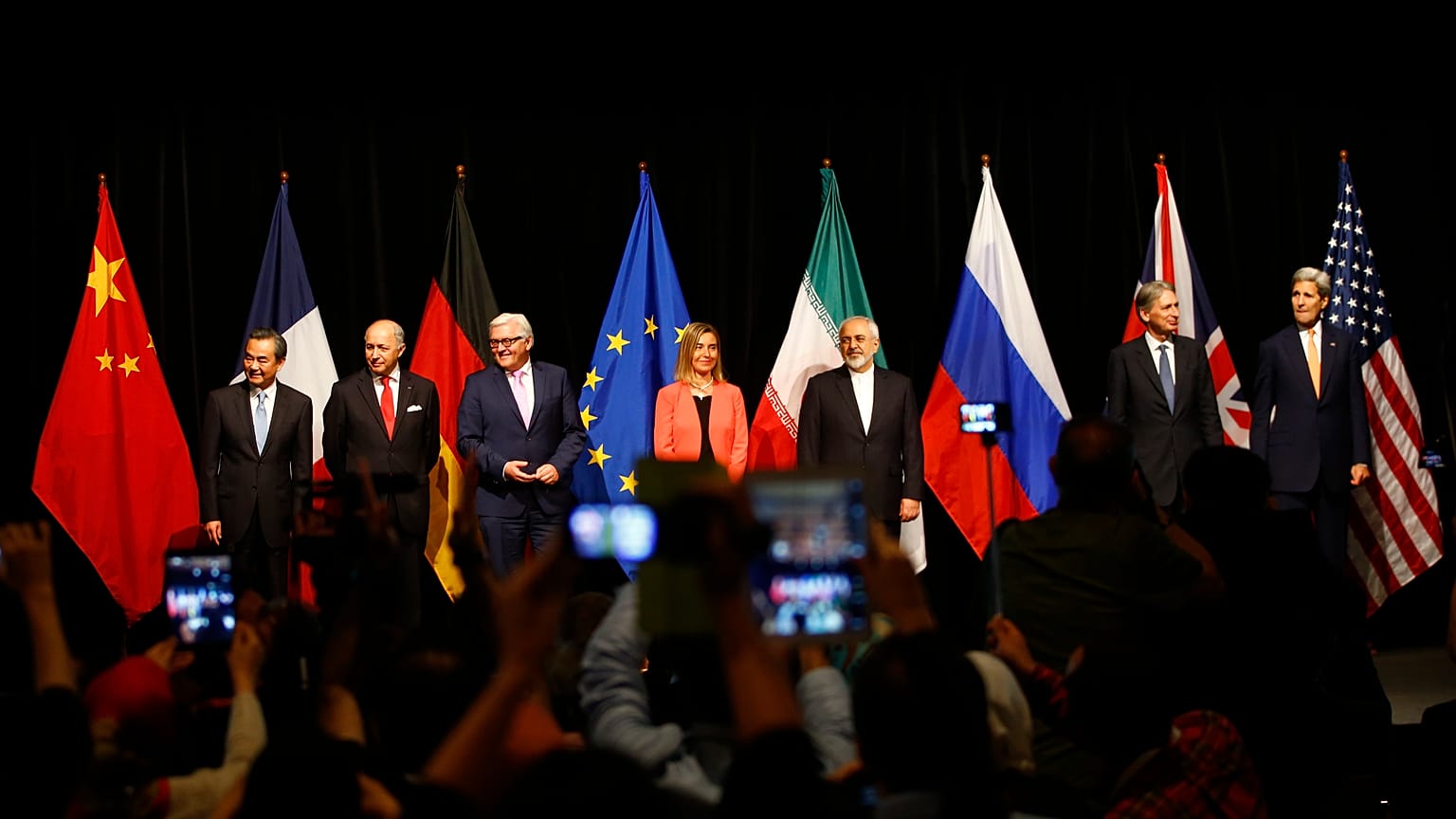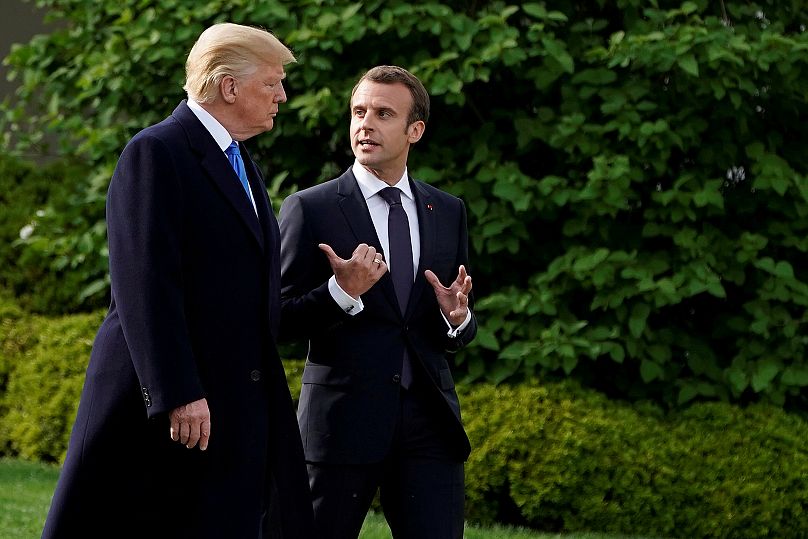Several countries are fighting to save the 2015 pact in which Tehran agreed to curb its nuclear activity in return for sanctions relief. President Trump has threatened to ditch the "insane" deal on May 12.
While the Donald Trump administration has been threatening to pull the US out of the Iran nuclear deal, other countries involved in drawing up the 2015 accord have been pulling out all the diplomatic stops to keep Washington on board.
Under the deal, Iran agreed to curb its nuclear programme in exchange for sanctions relief. Officially known as the Joint Comprehensive Plan of Action (JCPOA), it was agreed with the US, the UK, France, China and Russia (the five permanent members of the UN Security Council), as well as Germany.
Britain, France and Germany have indicated they will seek to stay in the deal even if the United States withdraws. Here is where the various interested countries stand now.
United Kingdom
Prime Minister Theresa May spoke with Trump by phone at the weekend. Foreign Secretary Boris Johnson has gone to Washington on a diplomatic drive to keep the US on side.
In an opinion article for the New York Times, Johnson says the UK shares Trump’s concerns over Iran’s “dangerous” actions in the Middle East, its support for terrorist groups, cyberspace behaviour and long-range missile programme.
But, he argues, the agreement is the least bad option available — and imposes “handcuffs” on Tehran that have been effective. No deal would “add the possibility of a regional nuclear arms race triggered by Iran dashing for a bomb. That is the scenario which the agreement has helped to prevent,” he writes.
The UK’s ambassador to the US has confirmed that London is considering ways of keeping the accord alive, if the US does pull out.
“Of course we are looking at all eventualities. My government has said that as long as Iran is in compliance with the deal and wants to stick with it that will be our position as well. So we’re looking at options for maintaining the deal should — which we hope they won’t — should the US administration choose to withdraw,” Sir Kim Darroch told CBS News on Sunday.
France
President Emmanuel Macron has warned that war could ensue if Trump withdraws the US from the deal. “We would open the Pandora’s Box. There could be war,” the French president told the German weekly Der Spiegel. “I don’t think that Donald Trump wants war.”
Faced with Trump’s hostility to the current deal, Macron suggested a compromise during his visit to Washington last month. He floated the idea of working towards a new accord — but one which builds upon, rather than ditches, the 2015 measures. He said he agreed with the US president that the current pact was “not sufficient”, adding that a “new deal” should address Iran’s long-term nuclear activity, ballistic missiles and regional influence.
More recently, in Australia, the French president repeated that the 2015 accord was a “pillar” for a wider, more global solution. “If we destabilise the whole region because of Iran, we will nourish the next terrorist movements which will be born in the region,” he told Le Journal du Dimanche newspaper.
Germany
Germany has joined Britain and France in aiming for a separate political agreement — not including Iran, Russia or China — that commits to taking a tougher stance on Iran if this can be agreed with the US State Department.
Last week Chancellor Angela Merkel echoed Macron in arguing for the negotiating framework to be broadened. It followed her recent visit to Washington in which she also lobbied Trump directly.
Germany's president has joined the chorus calling on the US to stick with the 2015 deal. “It mustn’t be forgotten what could happen if this accord collapsed and if the Middle East began to re-arm,” German President Frank-Walter Steinmeier told ARD television this weekend.
European Union
As in Berlin, officials in Brussels have been looking at ways of keeping economic ties with Iran intact, to discourage Tehran from taking rash decisions such as leaving the deal in the event of a US withdrawal. Trade has soared since the European Union lifted most of its sanctions on Iran.
Mechanisms are being considered to protect European firms doing business with Iran, should they face US legal action if Washington reimposes its own sanctions. This could include reviving a special EU blocking statute developed in the 1990s to shield European companies, but it’s thought such a move might be largely a symbolic step to show Iran that Europe was committed to the deal.
The EU, which helped broker the 2015 accord, has promoted the role of international institutions and dialogue in a bid to head off hasty decisions. Foreign policy chief Federica Mogherini has reminded the US and Israel that according to the International Atomic Energy Agency (IAEA), “Iran has fully complied with its commitments”.
The nuclear watchdog has, however, recorded several technical violations by Iran since it began verifications in 2016.
Israel
Israeli Prime Minister Benjamin Netanyahu has echoed Trump in describing the 2015 pact as “horrible”, citing Israeli intelligence pointing to the existence of a secret Iranian nuclear weapons programme before 2003. Failure to disclose it, he said, meant that Iran had violated the accord.
“Iran lied, big time,” Netanyahu said. He is vehemently opposed to the deal, which he says only halts Iran’s nuclear capability temporarily.
Israel is also believed to have nuclear weapons, although it has not confirmed or denied it.
Russia and China
Russia has repeatedly said it wants the Iran nuclear deal left intact. On Friday Foreign Ministry spokeswoman Maria Zakharova said Moscow would deem any changes to the deal to be unacceptable.
This weekend Russia and China issued a joint statement, reaffirming their “unwavering support for the comprehensive and effective implementation” of the 2015 accord, backing the IAEA’s “essential and independent role” and its findings.
Moscow, which has said it believes “no alternative exists” to the nuclear deal, is to host Netanyahu this week. The Israeli prime minister is due to meet Russian President Vladimir Putin.
Iran
President Hassan Rouhani said on Sunday that Iran would respond to any move by Trump to renege on the 2015 agreement.
“We have plans to resist any decision by Trump on the nuclear accord,” he said in a speech broadcast live on state television. The Iranian leader warned that Tehran would revive its nuclear energy programme, and would not be intimidated into limiting its missile power, should the US withdraw.
“We will not negotiate with anyone about our weapons and defences, and we will make and store as many weapons, facilities and missiles as we need,” Rouhani said. Iranian leaders have rejected talks on the country’s missile programme, insisting it is defensive.
However, some observers believe the Iranian president would be weakened by a US withdrawal. Beset by domestic problems including a poorly-performing economy, Rouhani is also thought to be threatened by hardliners looking to constrain his attempts to open up to the West.
















